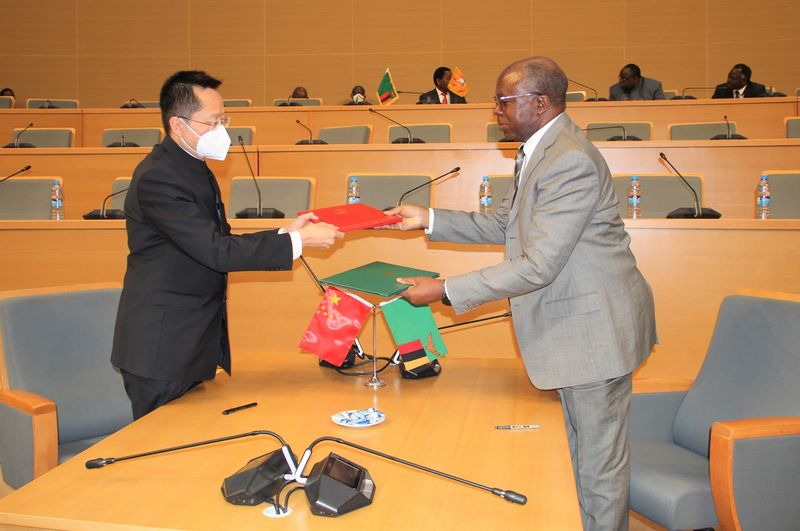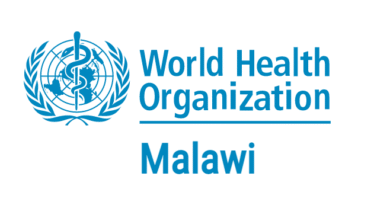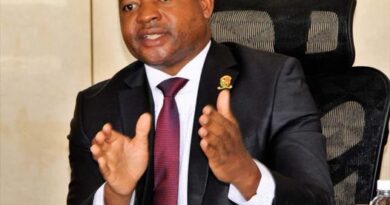Zambia’s 2023: A Year of Challenges, Debt Negotiations, and Shifting Dynamics with China – by DR. BASIL HAMUSOKWE
As the clock struck midnight on January 1st, 2023, Zambia entered a transformative year marked by a cascade of challenges, from the far-reaching impacts of climate change to the intricacies of a complex debt restructuring agreement.
In a historic turn of events, Zambia became the first African country to default on its debt during the COVID-19 era, setting the tone for a year defined by economic uncertainties.
The complex dynamics of Zambia’s financial struggle were underscored by the prominent role of China, acting as Zambia’s largest Official Creditor and a key investor.
This solidified China’s influence in the country’s debt negotiations throughout 2023, making it a central focus in media discussions, especially regarding Zambia’s economic development.
President Hakainde Hichilema, in an optimistic outlook outlined in the state-run Zambia Daily Mail, envisioned a 2023 focused on unlocking local economic challenges and redirecting public institutions towards citizen-centric service delivery.
The primary emphasis remained on alleviating the burden of debt distress, identified as a major obstacle to the country’s economic progress.
The year commenced with President Hichilema’s intent to reset Zambia’s relations with China, sparking discussions on the implications of such recalibration. The visit of U.S.
Treasury Secretary to Zambia in January heightened speculations about debt relief, setting the stage for prolonged debt talks throughout the year.
Media coverage intensified as various news outlets reported on the urgency of addressing Zambia’s substantial debt burden. U.S.
Treasury Secretary Janet Yellen’s push for China to address Zambia’s debt burden garnered attention, provoking a swift response from the Chinese Embassy in Zambia, accusing the U.S. of sabotaging debt talks.
International media, including Financial Times and Global Times, shed light on the distress of prolonged debt restructuring, emphasizing China’s commitment to supporting the process.
The interconnectedness of debt and growth was a recurring theme, with concerns raised about transparency in trade relations with China by outgoing World Bank President David Malpass.
June brought a glimmer of hope as Zambia announced a comprehensive debt treatment agreement with its Official Creditors under the G20 Common Framework.
However, media reports surrounding President Hichilema’s state visit to China in September revealed a lack of substantial progress in addressing the substantial $6.3 billion debt revamp.
Reports about China’s expanding influence in Zambia, particularly concerning economic fairness and competition, reflected both positive and negative perspectives.
The year concluded with the dramatic resignation of Zambia’s Foreign Affairs Minister Stanley Kakubo amid allegations of a bribery scandal involving a Chinese firm, raising concerns about corruption within the Zambian government and the nature of relations between Zambia and China.
Throughout 2023, a notable contrast emerged between the tone of Zambian media and their international counterparts. Local news sites adopted a measured and neutral stance, refraining from overtly criticizing China’s role in debt negotiations.
In contrast, international media provided more critical perspectives, emphasizing the urgency of addressing Zambia’s debt burden and delving into geopolitical implications.
The lukewarm approach in local media reports may have been influenced by diplomatic considerations, economic ties, and a desire to maintain a stable relationship with China.
As Zambia navigates its complex relations with China, finding a balance between economic cooperation and safeguarding national interests remains a crucial task, and the role of the media in scrutinizing these relations becomes increasingly important for Zambia’s future.
Source: Makanday Media



